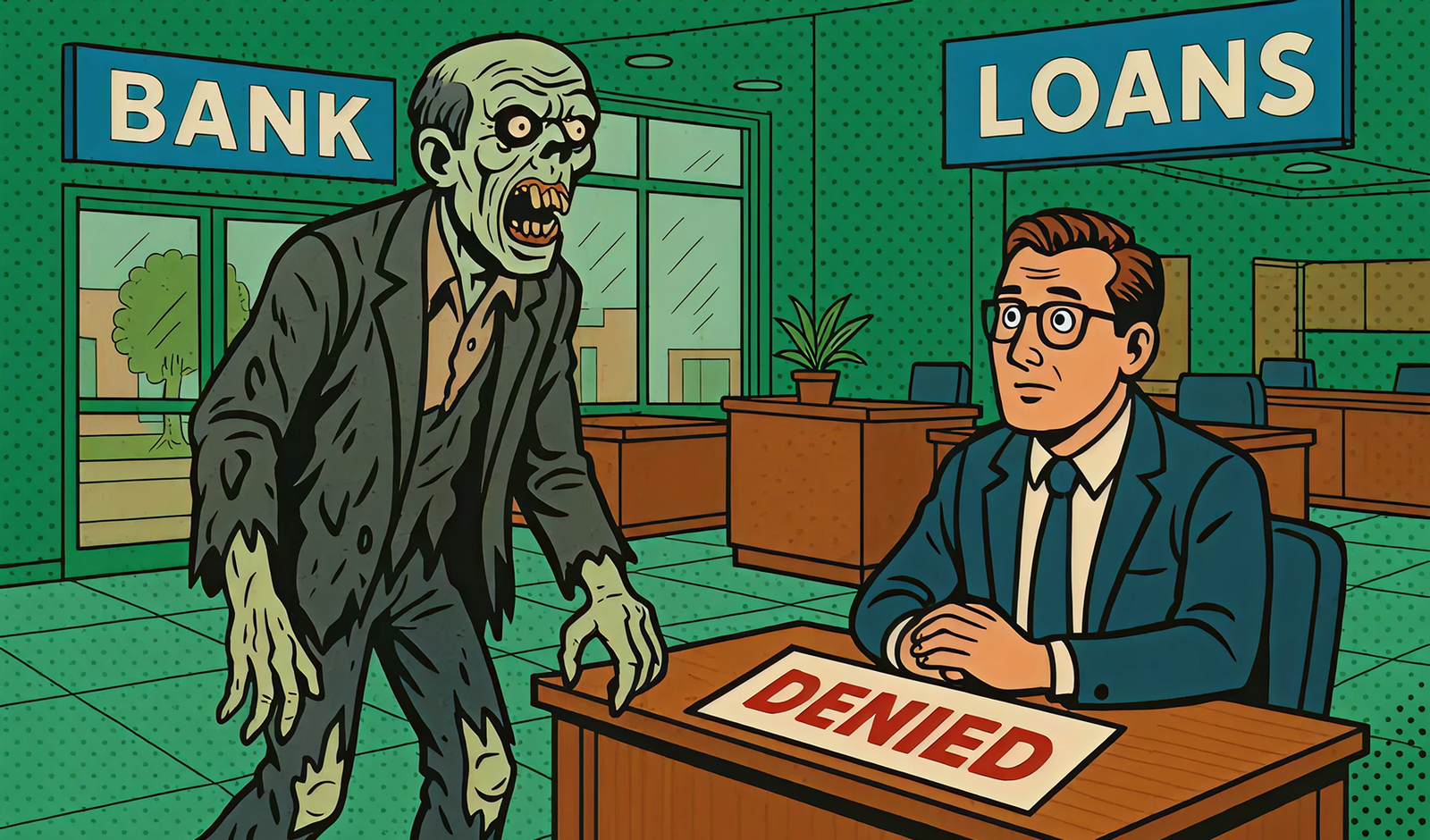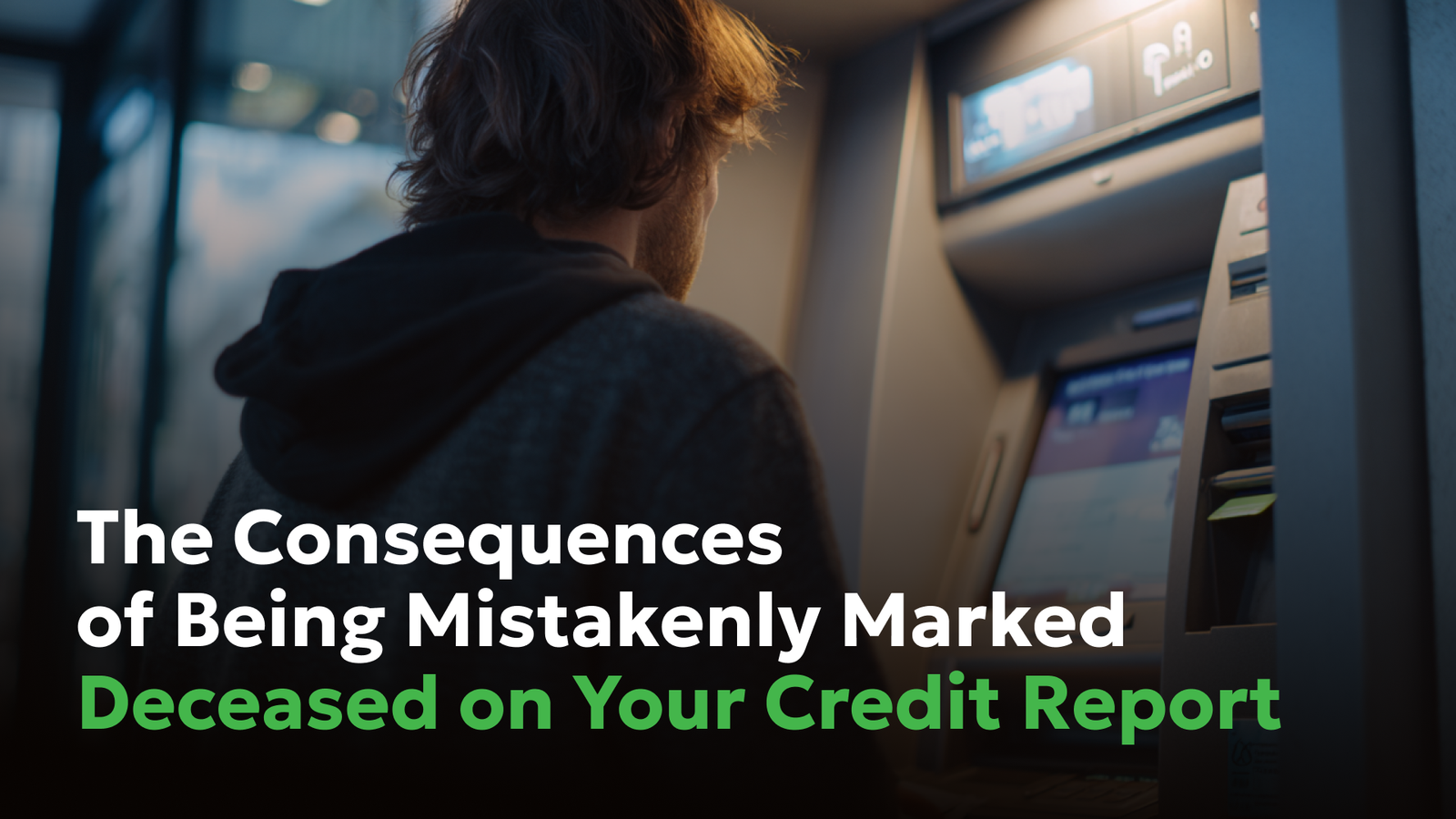Wrongly Declared Deceased on Your Credit Report? Here’s What You Need to Know
- Our Practice Areas
- Credit Reporting Errors
Deceased Notation

Deceased Notation Errors: When You're Wrongfully Declared Dead
Few credit report errors are as devastating - and surreal - as being incorrectly labeled "deceased" by a credit reporting agency. A mistaken deceased notation can shut you out of the financial system almost overnight, leading to frozen accounts, denied loans, canceled credit cards, and endless confusion. For thousands of Americans every year, this bizarre but damaging error results in major financial and emotional hardship.
Deceased notation errors, while less common than some other reporting mistakes, have catastrophic effects when they happen. The Social Security Administration (SSA) estimates that nearly 12,000 living Americans are mistakenly listed as deceased each year. Once this misinformation reaches the credit bureaus, it can cause a cascade of closures and denials across your entire financial life.
A wrongful deceased status isn't just a clerical error - it's a barrier to basic living needs like securing housing, financing a vehicle, or obtaining insurance. At Consumer Attorneys, we are committed to helping clients restore their credit identity and hold responsible parties accountable for the serious harm caused by these errors.
How Deceased Notation Errors Occur
A wrongful deceased status typically originates from errors at the Social Security Administration, creditors, or credit bureaus. An SSA data mix-up - such as a mistyped Social Security number or name - can incorrectly trigger death notices across financial systems. Creditors sometimes misreport a customer as deceased due to clerical mistakes during account servicing or after a customer dies and joint accounts are involved. Even when creditors provide accurate data, credit bureaus like Experian, Equifax, and TransUnion can mistakenly apply a deceased flag to the wrong file, especially when people share similar identifying information. Once a “deceased indicator” is attached, automated systems across industries rapidly cut off access, amplifying the damage.
- Social Security Administration Data Mix-ups: An error in SSA records can incorrectly signal death to creditors and financial institutions.
- Creditor Mistakes: Sometimes, lenders incorrectly report a customer as deceased after confusion during account management or debt collection.
- Credit Bureau Misinformation: Even when creditors provide correct information, CRAs like Experian, Equifax, and TransUnion may mistakenly apply a deceased flag to the wrong file.
Once a "deceased indicator" is attached to your credit file, automated systems used by banks, insurers, landlords, and employers may automatically decline or terminate applications without further review.
Real-World Example of Deceased Notation Error
Mortgage Application Denied
Angela, a working mother in Texas, was shocked when her mortgage refinancing application was rejected. Her lender’s underwriter reported that her credit profile showed her as deceased, despite years of active account use. The error delayed her refinance for months, costing her thousands of dollars in higher interest payments.
These examples illustrate that being wrongfully marked as deceased is far more than an inconvenience - it is a major disruption to everyday life.
Why Deceased Notation Errors Are So Harmful
Being wrongly declared dead creates an immediate and severe financial crisis. Accounts may be frozen or closed without notice, cutting off access to money for everyday needs like rent, groceries, or healthcare. Housing becomes nearly impossible to secure, as lenders and landlords reject applications tied to a “deceased” credit file. Job seekers can also face rejection when background checks flag them as deceased, especially in finance or government roles. Beyond the financial fallout, the emotional toll is profound - people endure months or years of confusion, embarrassment, and relentless stress while fighting to prove they are alive and restore their reputation.
- Loss of Access: Immediate freezing or closing of bank accounts, credit cards, and lines of credit.
- Housing Challenges: Denial of mortgage loans, rental applications, and housing assistance.
- Employment Issues: Problems with background checks for jobs requiring credit verification.
- Emotional Distress: Confusion, humiliation, and months or even years of ongoing stress trying to clear your name.
Why Disputing Alone Often Falls Short
Correcting a deceased notation on your own can feel like an impossible maze. Credit bureaus frequently demand excessive documentation, such as notarized letters, death certificate corrections, or multiple forms of government ID, even after it’s clear the consumer is alive. Automated dispute systems, including e-OSCAR, often mishandle cases by sending brief verification requests to furnishers, who may rubber-stamp the original, incorrect data. Each failed dispute not only delays resolution but can also make the error harder to fix, as it becomes embedded in your file as “verified.” Without experienced legal advocacy, most consumers struggle to break this cycle or recover compensation for the disruption and harm they’ve endured.
- Credit bureaus may demand absurd levels of proof, even after receiving government IDs.
- Automated systems frequently mishandle disputes, "verifying" incorrect information without serious investigation.
- Each denied dispute further entrenches the error in your records.
Without legal representation, many victims find it almost impossible to fully restore their financial standing and claim compensation for their losses.
Your Rights Under the Fair Credit Reporting Act (FCRA)
The FCRA guarantees your right to:
- An accurate and up-to-date credit report
- Dispute any false information, including wrongful deceased flags
- Have CRAs and furnishers conduct a reasonable reinvestigation
- Recover damages - including emotional distress and punitive damages - if errors are not corrected
If a credit bureau or furnisher fails to fix a deceased notation after being properly notified, you have the right to sue and recover compensation for the harm caused.
How Consumer Attorneys Can Help
Correcting a deceased notation error demands immediate and aggressive action. At Consumer Attorneys, we:
- Obtain and Review Your Full Credit Files: We gather your complete records from all major credit bureaus.
- Prepare Formal Disputes and Legal Notices: We send powerful, legally sound challenges to demand correction.
- Litigate When Necessary: If CRAs or furnishers refuse to act, we pursue litigation to enforce your rights and secure damages.
We operate under fee-shifting provisions, meaning we fight to recover our legal fees from the companies responsible - not from your pocket.
If you have been wrongly declared deceased, time is critical. Contact Consumer Attorneys today for a free consultation, and let us help you.
Frequently Asked Questions
Correcting a deceased notation can take several weeks or even months, depending on how quickly the credit bureaus respond and whether proper evidence is submitted. Without legal help, the process can be delayed further by automated systems or repeated verification errors.
Being wrongly marked as deceased is extremely damaging, even if you discover it before major financial losses happen. You may be entitled to compensation for the emotional distress of seeing such a serious error, as well as for any financial harm like frozen accounts, denied loans, or lost opportunities. Under the FCRA, you can also recover statutory damages, punitive damages if the mistake was serious, and have your legal fees paid by the companies that caused the error.
If the Social Security Administration (SSA) mistakenly reported you as deceased, that error can quickly spread to creditors and the credit bureaus, causing major problems. Even if the mistake started with the SSA, credit reporting agencies are still responsible for ensuring the accuracy of your credit file. You still have the right to dispute the error, demand corrections, and seek compensation if the mistake causes you financial or emotional harm.
If your credit reports show you as deceased, most lenders will automatically deny your applications. Their systems treat a deceased status as a serious red flag, making it nearly impossible to get approved for loans, credit cards, mortgages, or even rental housing until the error is corrected.
If the error started with the Social Security Administration (SSA), it’s important to contact them right away to correct your official records. However, even if the SSA made no mistake, you still need to dispute the deceased status directly with the credit bureaus. Correcting both the SSA records and your credit reports ensures the error is fully removed from your financial history.
Related Articles




R
ONGS™You pay nothing. The law makes them pay.














